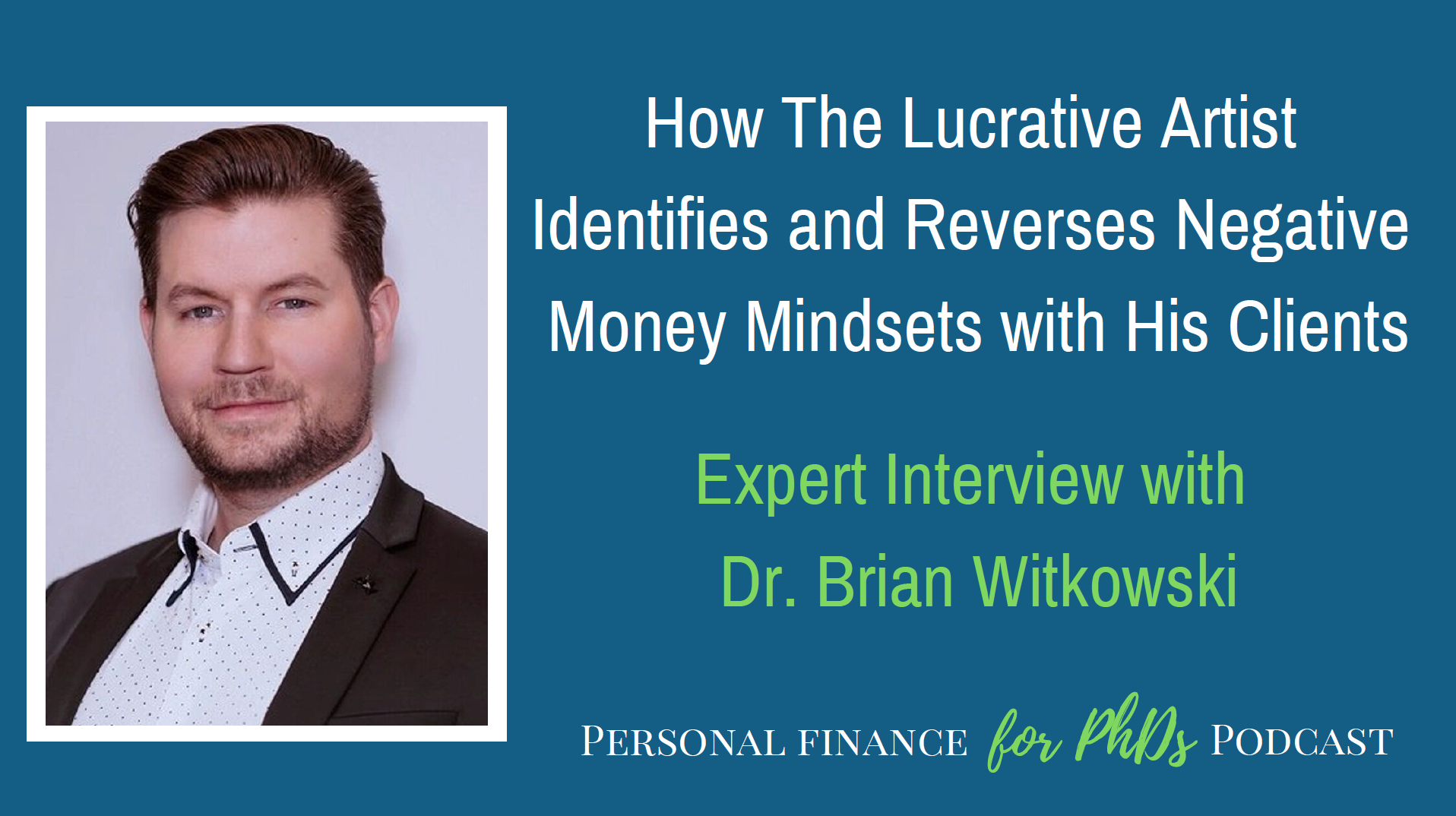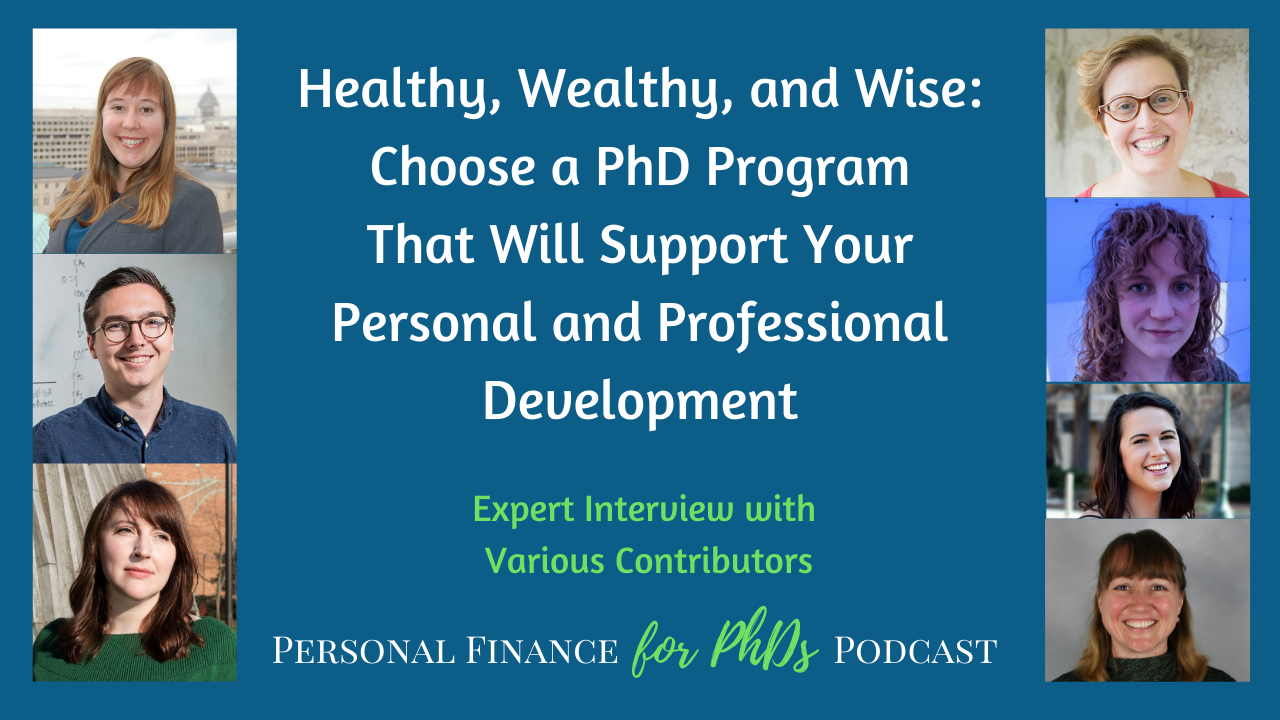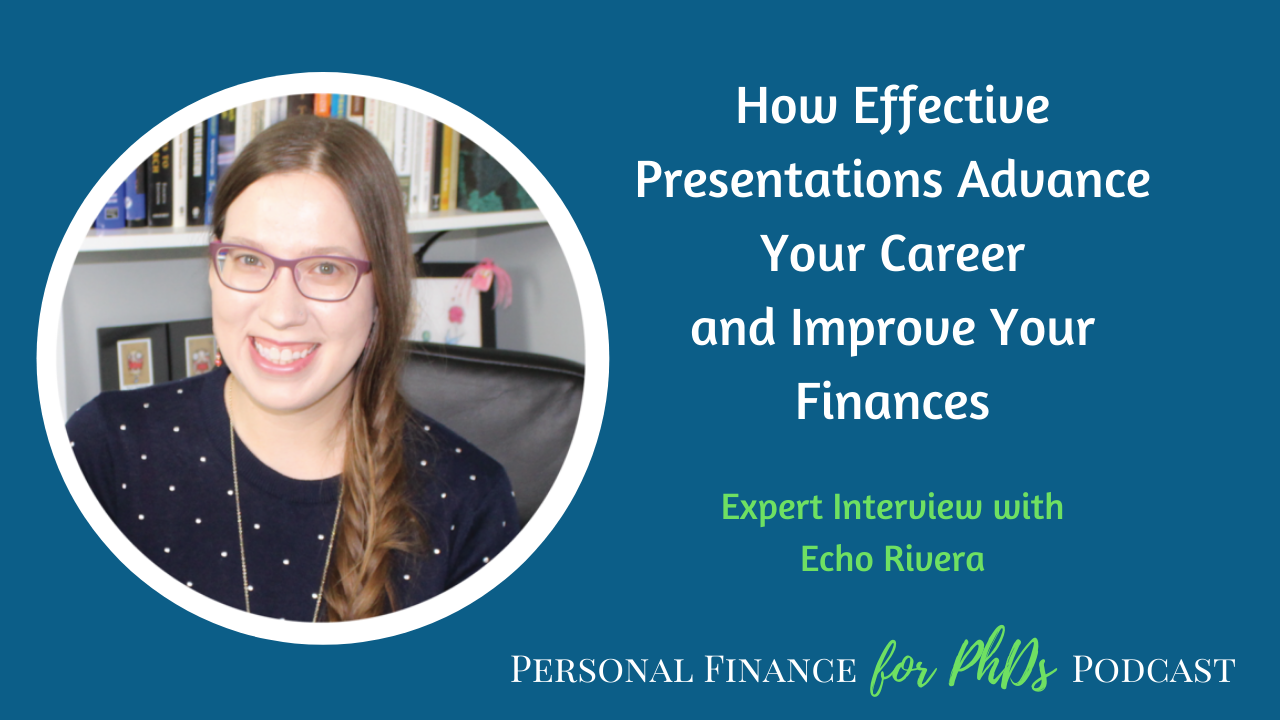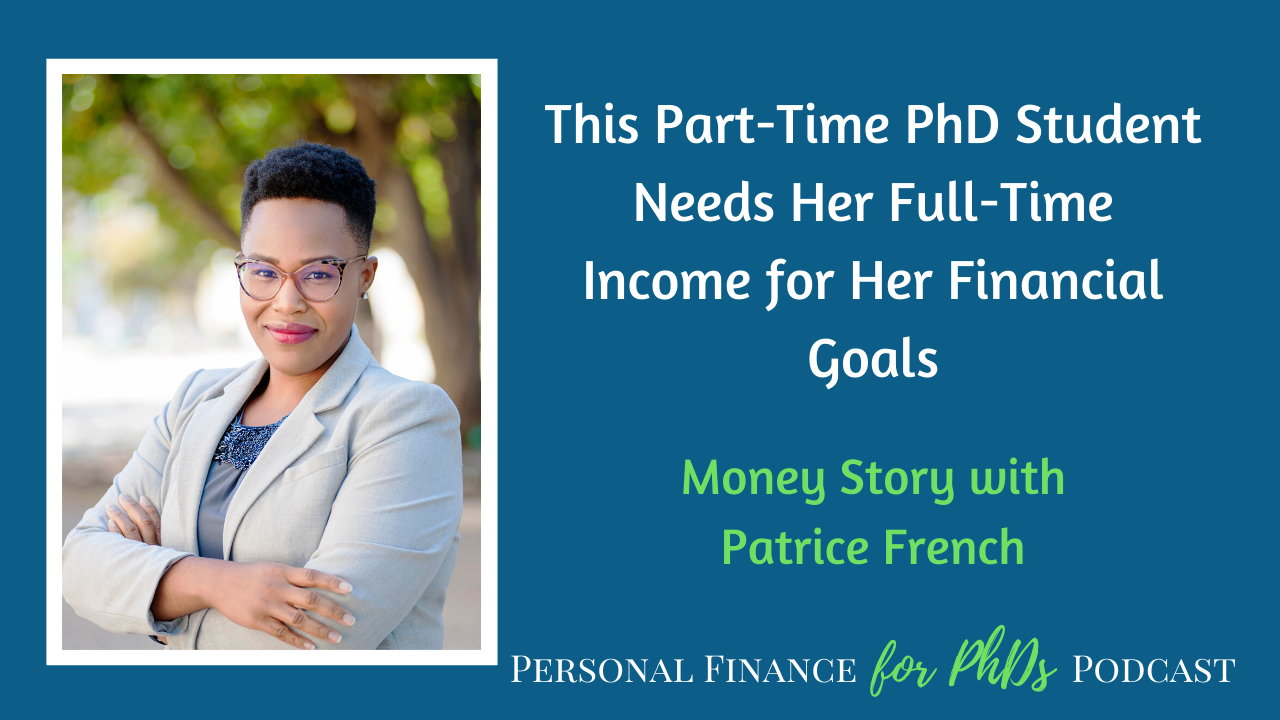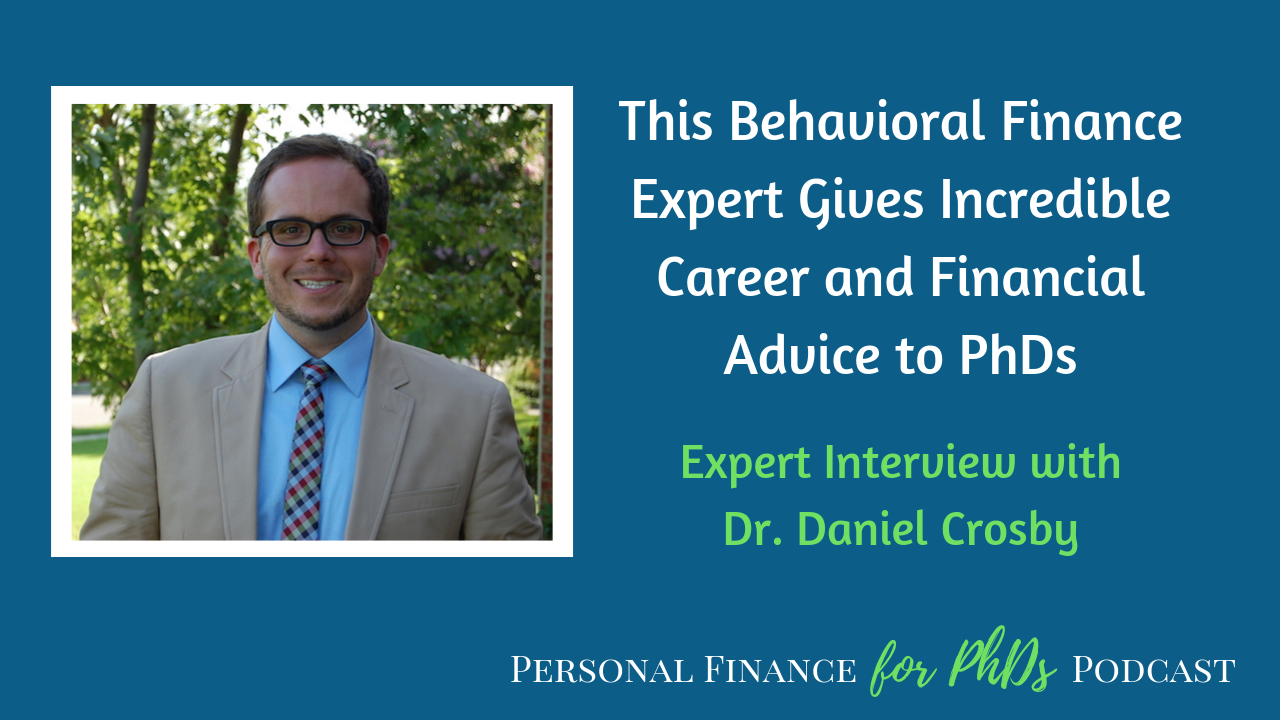Now that we’re a few weeks into our new normal of social distancing / isolation / quarantine, you may find yourself with the time, ability, and willingness to work on your personal finances*. Below are my top suggestions of activities you can engage in while social distancing that are highly likely to improve your finances in the short or long term, helping you to save money, pay off debt, and invest more money.
*If this sounds preposterous to you, this article isn’t for you right now! Keep taking care of yourself, your loved ones, and your community. If you want to know how I’m getting on without my regular childcare, listen to this podcast episode.
This is post contains affiliate links. Thank you for supporting PF for PhDs!
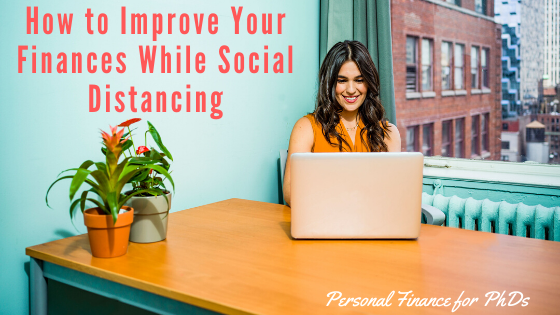
Read a Personal Finance Book
Reading (or listening to) a book is the most time-efficient way to consume high-quality, curated personal finance content. I started my personal finance journey with a few cornerstone books (some of which appear on the list below) before moving on to blogs and podcasts. Reading a book is a great way to get a firm foundation—if you choose the right book.
In normal times, I would suggest that you check your local or university library first for the books you are interested in before considering purchasing. Personally, I know my local library branches are closed, but ebooks are still an option.
The list below includes some of my personal favorites and suggestions I received in response to a Twitter prompt. The knowledge you’ll glean from any one of these books is worth incalculably more than you would pay for them if you do decide to purchase!
- A Random Walk Down Wall Street by Burton G. Malkiel
- Broke Millennial by Erin Lowry
- I Will Teach You to Be Rich by Ramit Sethi
- The Automatic Millionaire: A Powerful One-Step Plan to Live and Finish Rich by David Bach
- The Laws of Wealth by Daniel Crosby
- The Millionaire Next Door by Thomas J. Stanley and William D. Danko
- The One-Page Financial Plan: A Simple Way to Be Smart About Your Money by Carl Richards
- The Simple Path to Wealth by JL Collins
- The Two-Income Trap: Why Middle-Class Parents Are (Still) Going Broke by Elizabeth Warren and Amelia Warren Tyagi
- You Need a Budget by Jesse Mecham
- Your Money or Your Life by Vicki Robin and Joe Dominguez
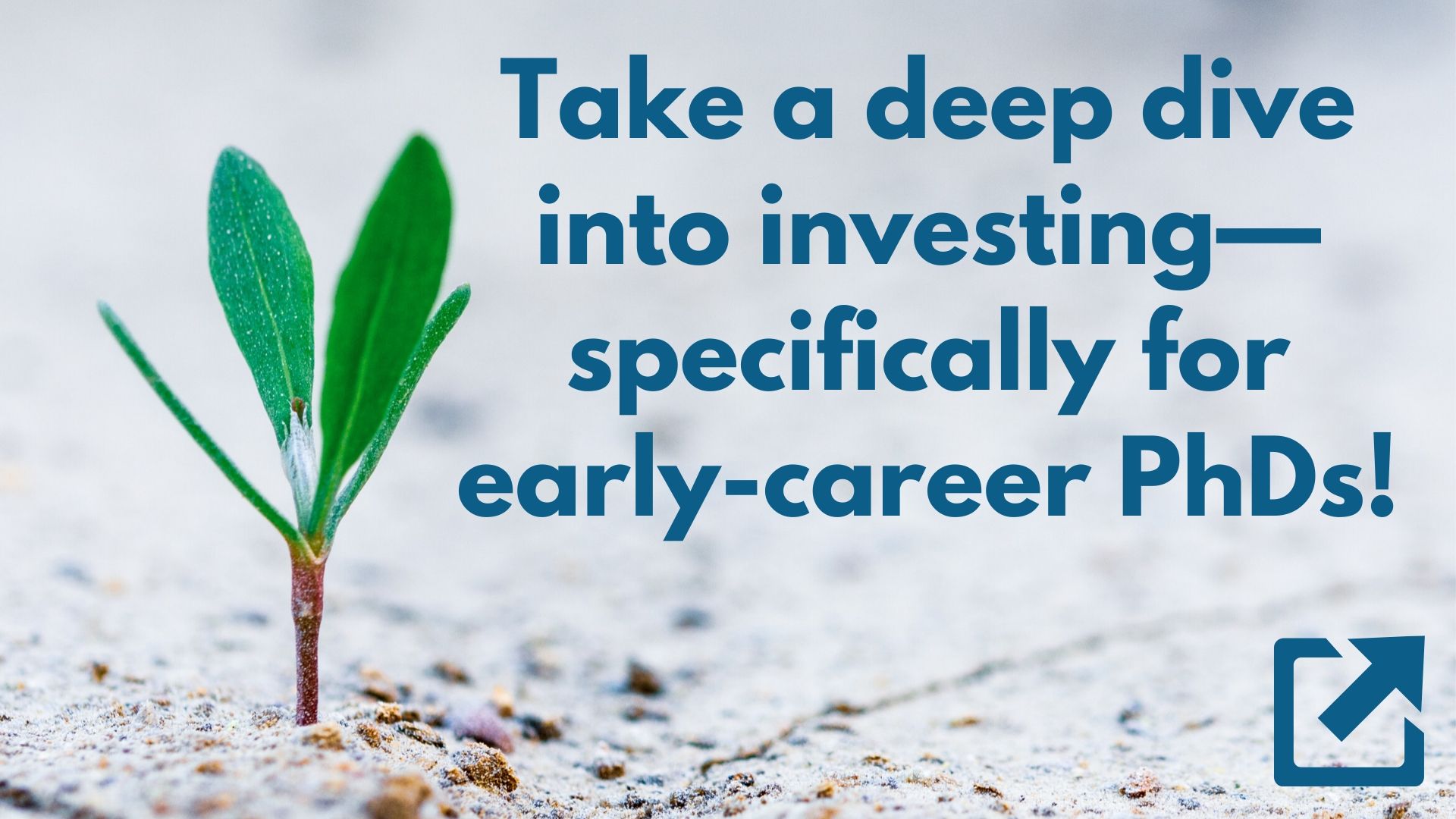
Catch Up on a Podcast
For fascinating interviews with financially successful people and in-depth discussions of particular financial strategies, I turn to podcasts. (Podcasts are the one thing I have more of in my current life than I do in my regular life!)
Personally, I am a Completionist, so I prefer to listen through the full archives of most podcasts that I decide to subscribe to. Now that you have the time, here are a few of my favorite personal finance podcasts and other popular ones in the space. Listen to a couple of the recent episodes; maybe you’ll decide to commit to the archive!
- Bad with Money
- Choose FI
- Gradblogger
- How to Money
- Journey to Launch
- Personal Finance for PhDs (I course I have to include my own!)
- So Money
- The Fairer Cents
- The Mad FIentist
File Your Tax Return
I am a major tax return procrastinator. My husband and I usually start working on our tax return in April and submit it barely under the deadline. Confession: This year, with the filing deadline extension to 7/15, we haven’t even started yet.
I do think that preparing your tax return is a good social distancing activity if you have the capacity. You can put an evening or two’s worth of uninterrupted time blocks to work with your tax software or even manually prepare your return (that’s our preferred method).
If you are expecting a refund, file ASAP to receive your refund ASAP. It’s your money! It should be working for you, either by paying expenses if you’ve experienced an income drop or going into savings, debt repayment, or investing if you income has stayed steady.
My tax workshop, How to Complete Your PhD Tax Return (and Understand It, Too!), comprises videos, worksheet(s), and live Q&A calls. Please consider joining through the appropriate link:
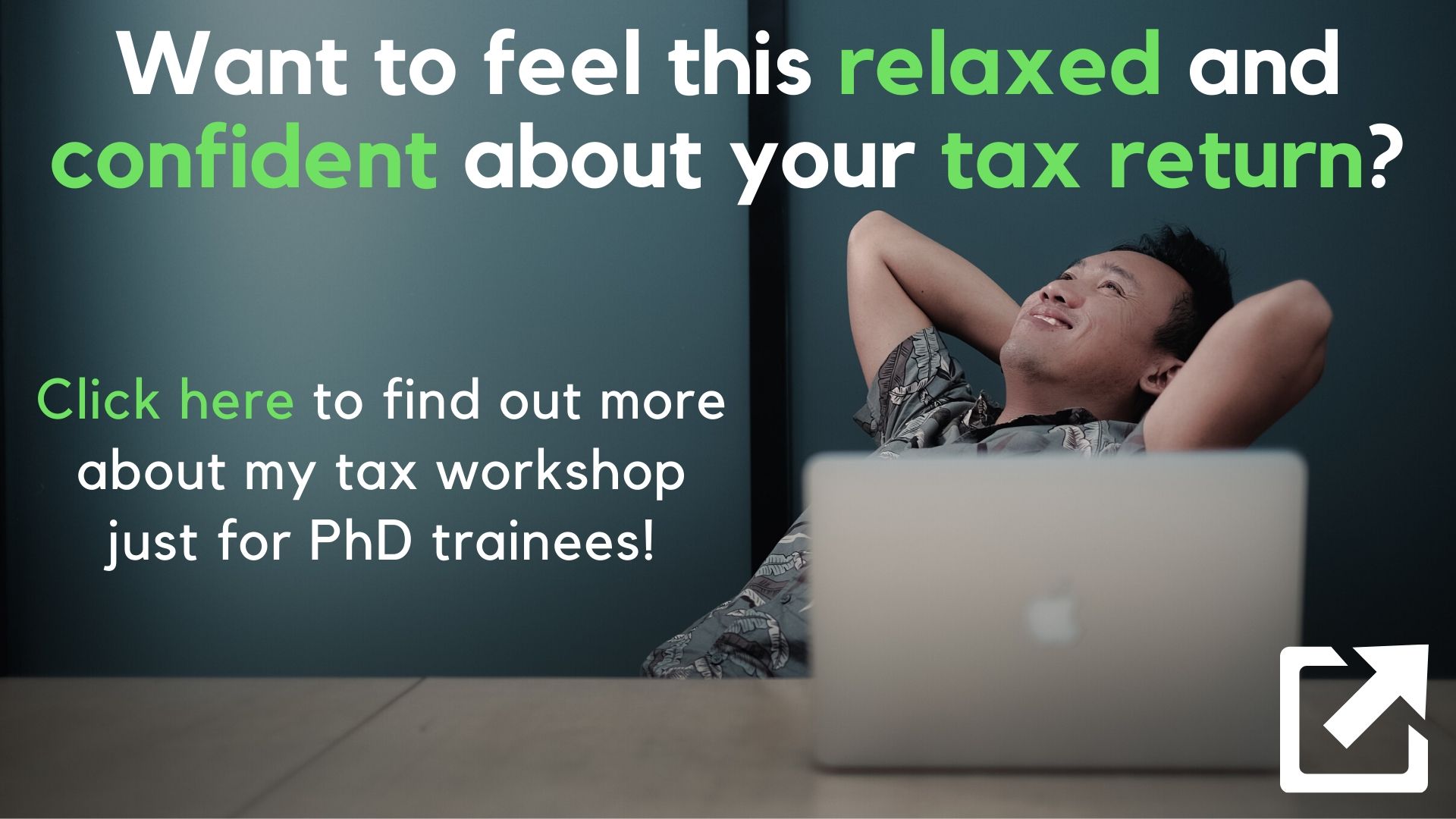
Network
One of the upsides of physical social distancing for some people is the chance to connect remotely with a different set of people than usual. (I am highly envious of this! I had high hopes to reconnect with old friends during this time… My children’s insistence on derailing all adult conversations has dashed those hopes.)
Instead of limiting your Facetime/Zoom calls to your family and friends, consider reaching out to people in your professional network.
In a general sense you should be networking like this all the time, but the motivation intensifies if you are coming up on an expected transition point in your PhD career or you think your job/position is at risk and you might need to look for another soon.
An excellent, low-risk group to network with right now is people who graduated from (or otherwise left) your PhD program in recent years. You can reach out over email to see what they’re up to and schedule a call if that is mutually agreeable.
If you reach out to someone and don’t receive a response, don’t take it personally! People are dealing with a lot right now. Just cast a wide net, and appreciate the people who are able to give you some of their time right now.
Oh, and always ask at the end of an interesting conversation if the other person can recommend one or more people for you to connect with next!
Explore Career Options
As a spin off of networking, right now is also an incredible time to work on exploring your career options. Yes, the academic job market looks abysmal right now, but—upside?—it’s been trending that way for decades, so there are lots and lots of PhDs established in non-academic careers that might be of interest to you.
A great first place to go for resources is your university’s career center. (Check on this even as an alum—you may have access to resources from all the universities/colleges you’ve graduated from.) The robustness of their resources for PhDs in particular might be strong or weak, but some of their resources for undergrads will still be helpful.
The career center may have assessment tools, instructional resources for job seekers, recordings of past live events, and opportunities to meet one-on-one with staff. If you know they have a resource that is not currently available online, submit a request that it is made available.
Two platforms for PhD job seekers in particular are Beyond the Professoriate (Aurora) and Versatile PhD. If your institution has a subscription, access the platform through its login mechanism, but if not you can sign up as an individual. Beyond the Professoriate has an upcoming online career conference as well.
To combine networking with exploring career options, set up informational interviews with people in careers you’d like to learn more about. From my experience on both sides of informational interviews, they can be quite enjoyable and beneficial for both parties!
Invest in a Frugal Strategy
Most of us are practicing forced frugality these days in a few areas of our budget. I’d wager that your discretionary spending was down in March from where it was February and that April will be lower than March. There are lots of possible uses for that freed-up cash flow, but consider one more: investing in a frugal strategy.
One of the major, legitimate complaints about frugal practices is that they take some capital to get started with. I’ve heard “Frugality is only for the rich,” for example. This is not the case for every frugal strategy, but it is for some. Well, now that you have some capital, what frugal strategies can you ‘invest’ in that you know will pay off with decreased spending over the long term?
I’ll give you one tiny example: Last December, I ‘fessed up—to myself—that my family (which includes two tiny children, one of whom is still in a high chair) was consuming paper towels at a positively alarming rate. We were buying the huge packs from Costco for $20 each half a dozen times per year. This didn’t sit well with me from a financial or an environmental perspective, so I purchased these microfiber cloths (12 for $12—now I wish I had doubled it!). They work far better than paper towels, our paper towel consumption rate dropped like a rock (we’ve probably made up for that initial investment twice over by now), and they haven’t substantially added to our laundry load. (Again, two tiny children—we already do a ton of laundry, including cloth diapers.) These towels were absolutely a frugal investment. Bonus: Not having the pressure right now of needing to buy this particular paper product before we run out when it is in short supply is a load off my mind!
Ask yourself: Are there any frugal strategies I’ve wanted to try but haven’t yet because of the up-front investment of capital? Can I use my newfound cash flow right now to establish one of the strategies? And if it wasn’t money but rather time was your limiting factor before: What frugal strategy did you never have time to initiate, but you can put in the time now to make it a habit?
Here are a few ideas for similar frugal/environmental investments, gleaned from this Twitter thread:
- Bee’s Wrap as an alternative to plastic wrap
- Silicone Reusable Food Bag as an alternative to sandwich bags
- Silicone Baking Mats as an alternative to parchment paper/foil/cooking spray
- Reusable Facial Cleansing Pads as an alternative to disposable cotton pads
- Wire Mesh Coffee Filter as an alternative to paper coffee filters
- Wool Dryer Balls as an alternative to dryer sheets
Sign Up for More Awesome Content

I'll send you my 2,500-word "Five Ways to Improve Your Finances TODAY as a Graduate Student or Postdoc."
Clear Out Your Closets, Etc.
My mother, a retired empty nester, has undertaken as her social distancing project clearing out the basement storage area of the home my parents have lived in for 30 years. It’s a massive project, and it is made more difficult by the closure of some of the places you might normally go to resell, donate, recycle, or trash your old possessions.
I do think a spring cleaning/clearing out is a good activity for right now. This might positively affect your finances if you are willing to hold on to the valuable items long enough to resell them. (You might be able to resell currently, but I suspect the demand will be relatively low.) If nothing else, it will benefit your mental health and will reduce the amount of work you’ll need to do leading up to your next move.
Close Old Financial Accounts (and Open New Ones?)
Spring cleaning can apply to your finances as well as your home!
You may very well have old banking or credit accounts that you no longer use or have need for. If you can close the old bank accounts without going anywhere in person, do so! Some people like to keep old credit card accounts open because length of credit history and utilization ratio play into your credit score. However, if you have a high credit score already, you should consider closing the accounts you don’t need; maybe just keep the single oldest account open. The suggestion to close old accounts goes quintuple for any accounts that charge you a fee.
In the same vein, now is a great time to join (aspects of) your financial accounts with your spouse or partner if you have decided to keep joint money. My husband and I decided to join as much as we could after we got married, and the months-long process involved researching and opening new accounts, waiting for money to transfer, and closing old accounts. Again, it’s a great social distancing activity as long as you don’t have to go anywhere in person. (Another reason online-only banks are my preferred institutions!)
If you’ve never looked into it before, you could put your free time into figuring out how to generate extra income from credit card or banking rewards. Please keep in mind that offers might be somewhat different during social distancing than they were before (or will be again). Before you open any new accounts, triple-check that you can meet the minimum spending requirements or transfer amounts given your (presumed) lower level of current spending.
Further Listening: How to Make Money without Working: Credit Card Rewards and 529s
Plumb Your Values/Dream
If you’ve been able and willing to slow down and reflect, this pandemic might have granted you new insight into what you want for your life. I don’t think you should be making any life-altering decisions in this stressful period, but lean into your different perspective and deepen your introspection.
What is truly important to you? What are the aspects of your life that make you feel fulfilled? What can you change about how you manage your finances to better support those aspects?
Further Reading: Determining Your Values and Financial Goals While in Graduate School
Get Coaching, Take a Course, or Join a Community
One way you can invest in yourself right now is to establish a relationship with a coach, join a community, or take a course focused on an area of personal or professional development. Spending money on this kind of endeavor makes it much more likely that you will actually take the necessary steps to ensure your financial success.
If your chosen area is finances, consider how you and I could work together. I offer one-on-one financial coaching, and I am also going to open up the doors to my program, The Wealthy PhD, in May 2020. Through both avenues, you will have individualized access to actionable knowledge, inspiration, and accountability. If you feel confident in your income security, this is the perfect time to firm up your financial plans and even take advantage of the unique opportunities this period affords.
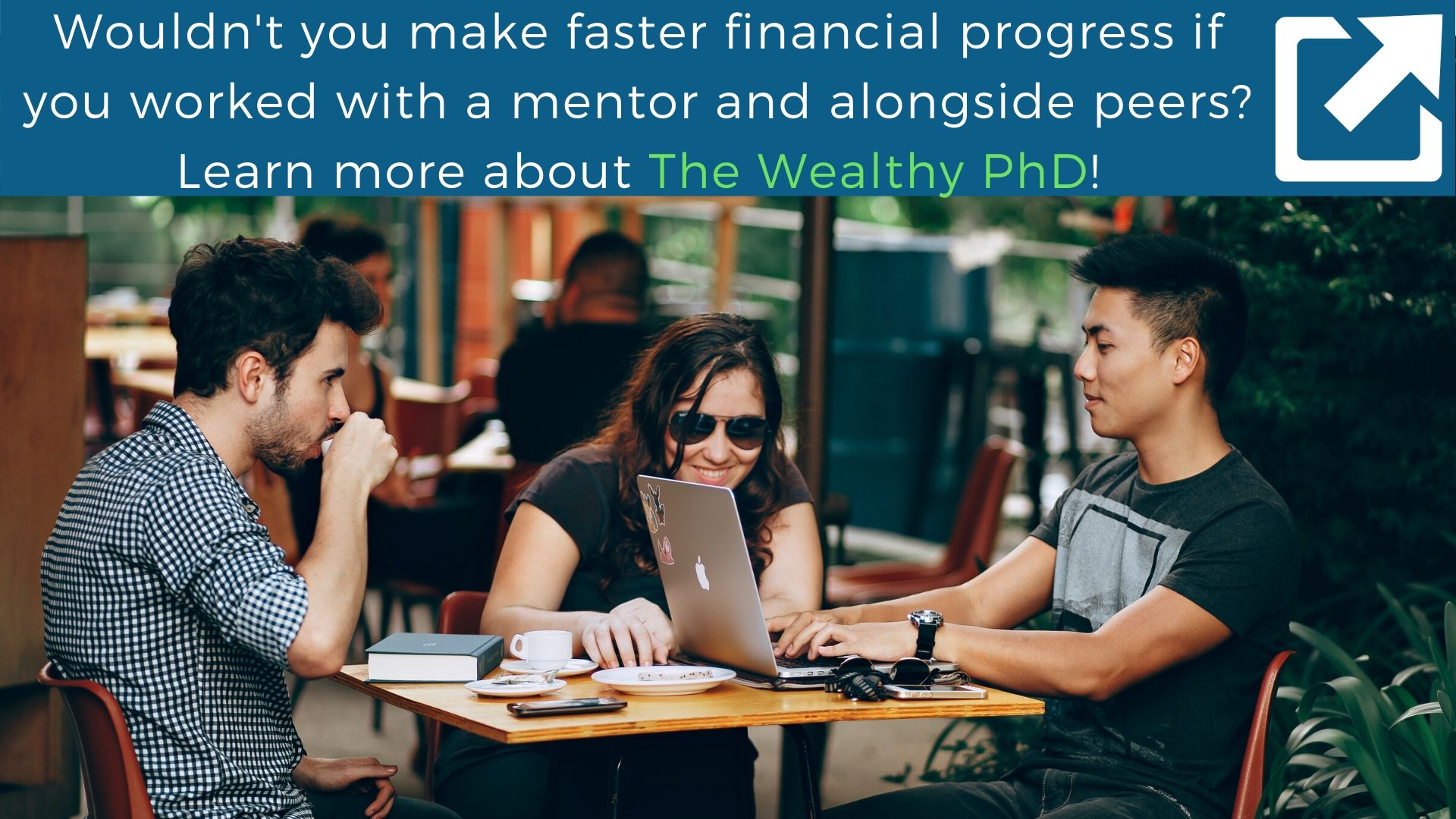
If finances aren’t your preferred area of focus right now, I also recommend checking out the services offered by my colleagues:
- Dr. Jen Polk coaches PhDs on their careers
- Dr. Katy Peplin’s community Thrive PhD supports graduate students around the mechanics of graduate school and their mental health
- Dr. Katie Linder offers podcasts with actionable tips, coaching and courses for academics on productivity and related topics
- Dr. Echo Rivera offers courses and coaching on effective presentation design & presenting with data for academics, scientists, and researchers (grad students through PhDs)
If you do commit to working on your professional or personal development in one of these other areas, I’m confident that there will be an indirect positive effect on your net worth! Perhaps at that point you’ll be ready to directly work on your finances with me.
How have you improved your finances while social distancing?
